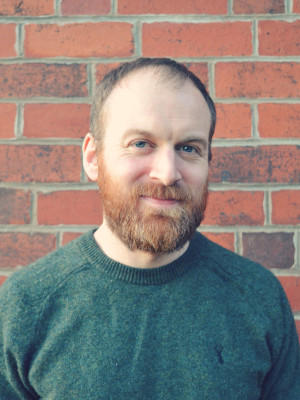Mental Health in Research Software Engineering
Posted on 14 December 2021
Mental Health in Research Software Engineering
By SSI Fellow Dave Horsfall.
Originally posted on the Society of Research Software Engineering blog.
There is a huge stigma associated with mental health. Just 13% of employees would be comfortable talking about mental illness at work, but stress, anxiety and depression are particularly common - with one in six workers experiencing one at any one time. The fear of speaking up prevents people from asking for help, or even just talking about their mental health.
I am passionate about good mental health in the workplace, and aim to raise awareness and make talking about mental health a part of everyday life, so that people feel they can talk freely and without being judged. The global pandemic has resulted in many workers making a rapid switch to working from home for the first time, with many finding themselves increasingly isolated and juggling other commitments. As we emerge from lockdown it is only normal to feel uncertain about what the future holds. Now more than ever it is important to protect our wellbeing and health. I have recently been awarded a Software Sustainability Institute fellowship aimed at tackling some of these issues and will be working closely with the RSE Society to develop several initiatives aimed at exploring, understanding and ultimately improving the mental health landscape for Research Software Engineers in the UK. I am thrilled that both the RSE Society and the SSI organisations are being proactive about mental health, and am excited to be part of this work.
Over the coming months and years I will be talking loudly about wellbeing and amplifying other voices who are talking about mental health. I am seeking to build a small community of people who are interested in this topic. This interest might be rooted in a desire to support colleagues in your profession, or because you have a mental health journey to share. Please reach out to me. You can join my audience, or follow me on Twitter and Medium.
Over the past six months I’ve been working with two UK mental health charities, Jonathan’s Voice and the Charlie Waller Trust, to assist with the development of a mental health guide for early career researchers in the UK. To focus on research software, my first milestone over the coming months will be to prepare a national mental health survey that, with the support of the RSE Society and SSI, will cover a large proportion of the research software community in the UK. The survey aims to capture a current snapshot of mental health problems within the profession, their causes, their impact, the support available to help people cope with them, and the steps that might be taken to improve things. The survey will explore the common stressors for software engineers and data scientists such as Impostor Syndrome, Burnout, Depression, Perfectionism, Decision Fatigue and Keeping up with Technologies.
The results from the survey will be published through the SSI, and will provide a strong evidence-based roadmap for several initiatives over the next 18 months. The primary initiative will be the development of a publicly available workshop, aimed at raising awareness of common mental illnesses and useful preventative measures to stay healthy. This ongoing work will be supported by Jonathan’s Voice.
In the meantime, I will continue to advocate for good mental health in the workplace and would encourage RSE teams in the UK to think proactively about wellbeing as we start transition out of the COVID-19 lockdown restrictions. If your team does not currently have any Mental Health First Aiders (MHFA), this is a great place to start. MHFA is an internationally recognised training course that costs approximately £300. It is designed to teach people how to spot the signs and symptoms of mental ill health and provide help on a first aid basis. They are not trained therapists, but are a point of contact for an employee who is experiencing a mental health issue or emotional distress.
Finally, the portrayal of mental health through imagery is hugely important in combating stigma. It is incredibly difficult to find genuine and authentic voices that convey the complexities of living with mental illness. That is why I am thrilled that Juan Francisco Gómez Guerrero has given permission to use his award winning Replica image with this article.

